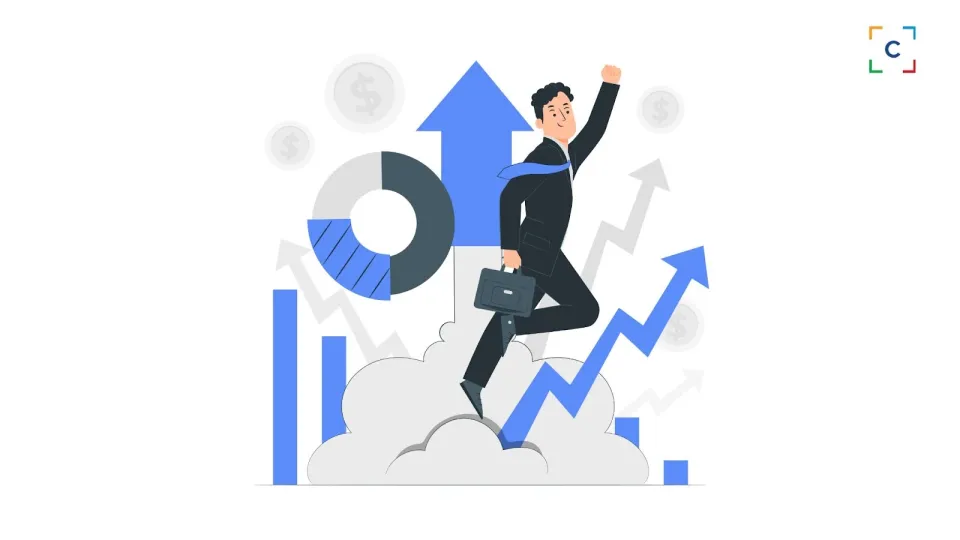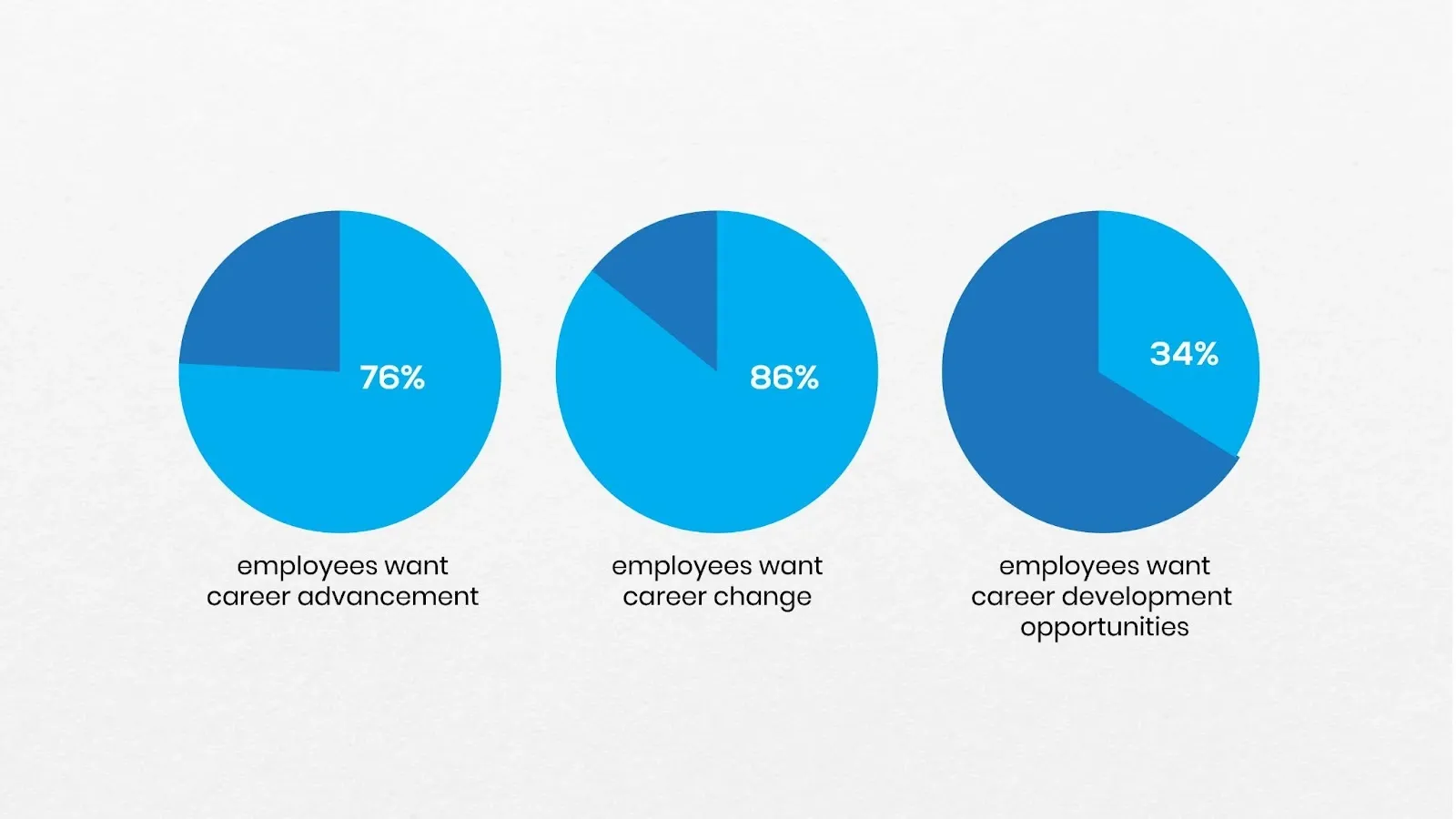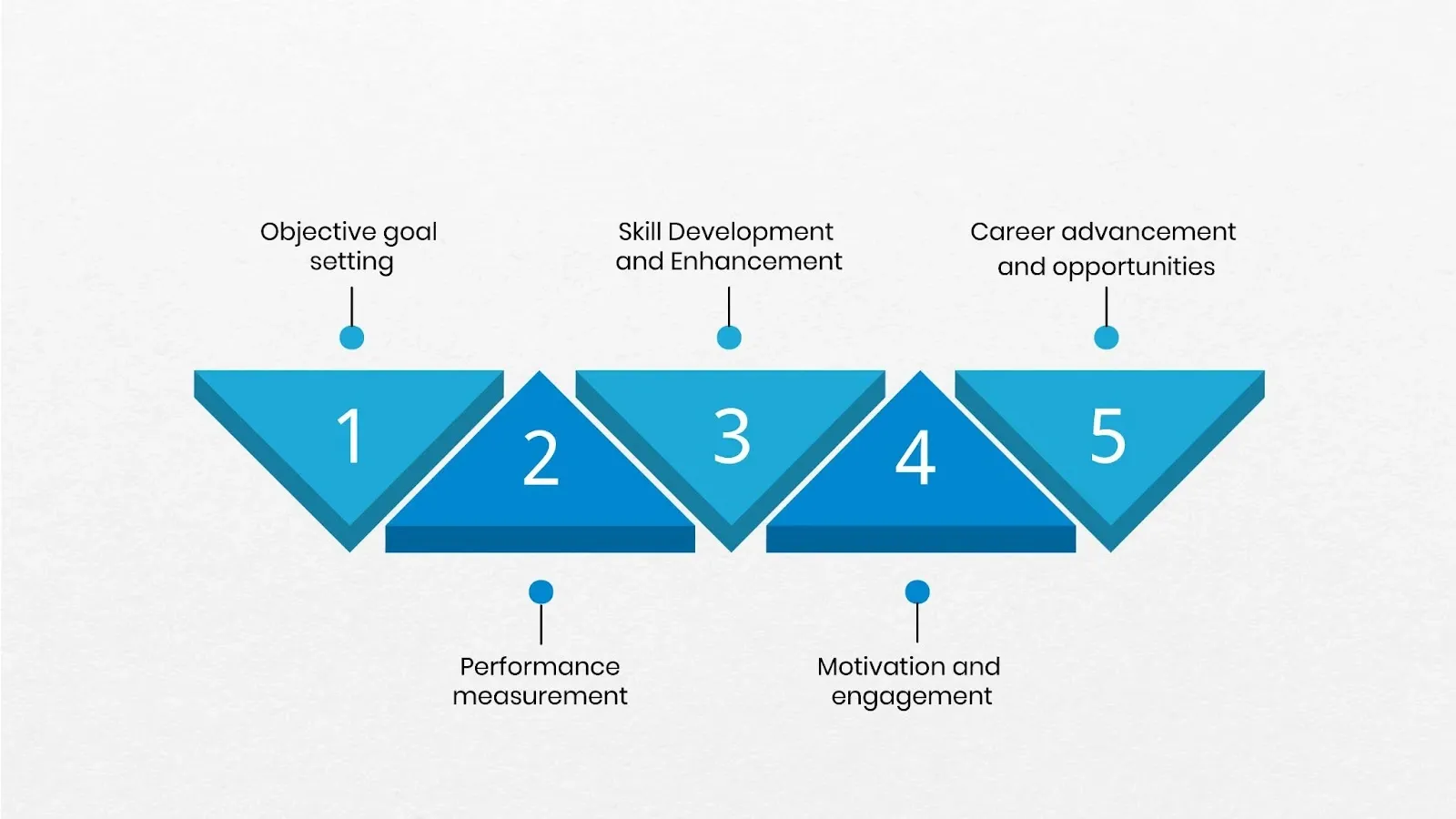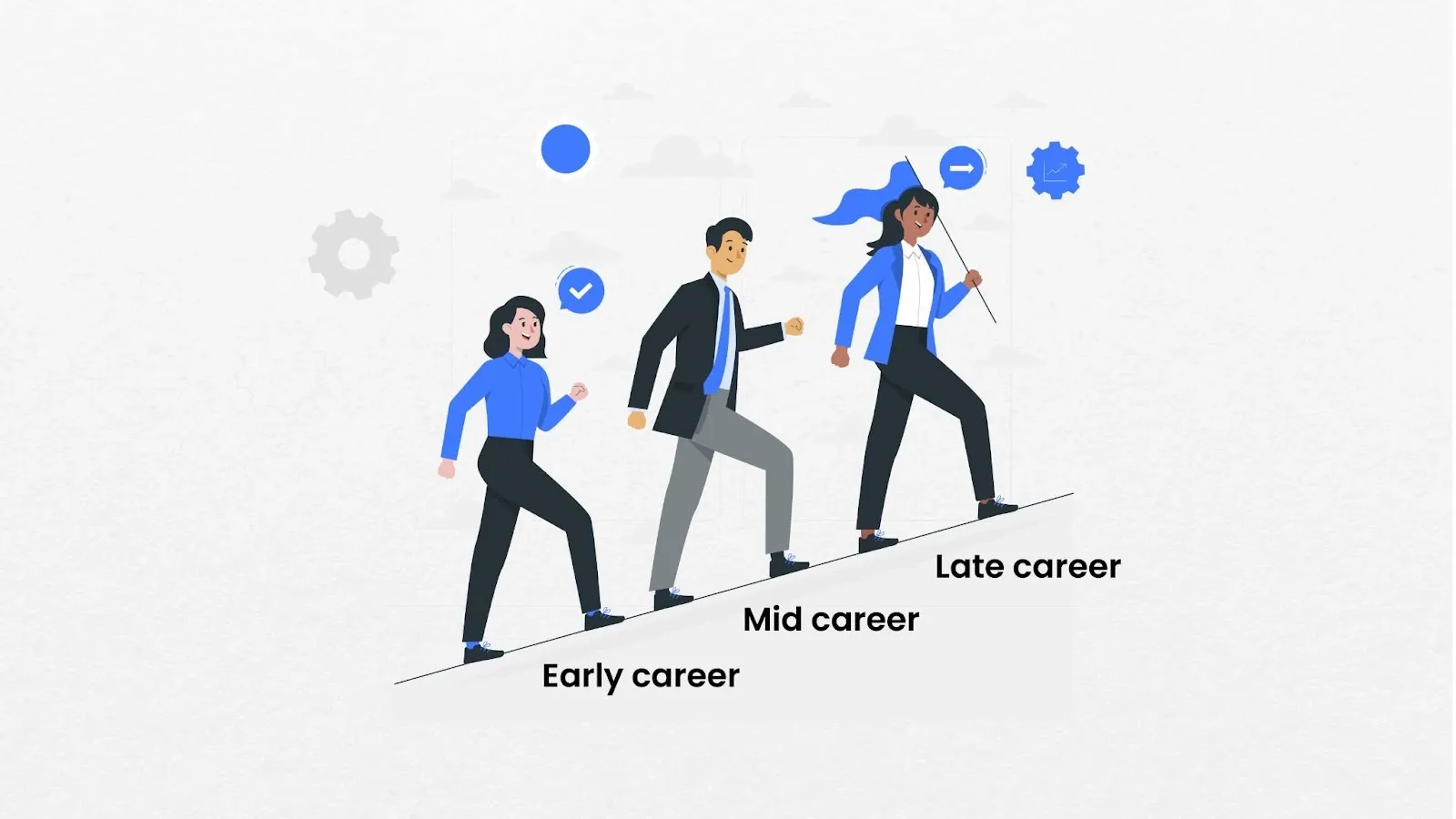Key Performance Indicators: A Beginner's Guide for Career Navigation

Wondering how KPIs can improve your career? How can success be counted for better understanding?
Like companies, job seekers and professionals have also started implementing KPIs to improve their career navigation. It’s hard to not be able to quantify your success, but with KPIs, it is possible. And, it has become essential to avoid failure and achieve career goals.
The need for KPI in career navigation is essential for achieving goals and moving strategically towards your targeted goals for a better career journey. Before we understand deeply about KPI in career navigation, let’s go through some key insights to show its importance:

- 76% of workers are looking for chances to advance their careers.
- 86% of workers express they would change jobs if offered positions with more significant growth opportunities.
- Employee retention rates are 34% higher for those with access to career development opportunities.
These percentages show why we need KPIs in career navigation and as career development metrics. Most people struggle and need help with their career plans despite planning them well and having a good professional network because of a lack of KPI. Let’s understand more about it in this blog.
Understanding KPI Basics

Key Performance Indicator
Key Performance Indicators are essential metrics used to measure the success of an individual or organization in achieving key objectives. Regarding career navigation, KPIs guide professionals to achieve their desired career outcomes.
By setting specific, measurable goals, KPIs provide:
- A clear framework for analyzing progress.
- Identifying areas for improvement.
- Making informed decisions about future directions.
It can be learning new skills, improving performance, or advancing to leadership roles; KPI offers a structured approach to personal and as career development metrics. It ensures that individuals remain focused and aligned with their career aspirations.
Importance of KPI:
- Guides career development: KPIs provide a roadmap for achieving specific career milestones.
- Measures Success: KPIs offer proper benchmarks to measure professional achievements.
- Identifies improvement areas: KPIs allow you to discover areas for improvement to enhance your career.
- Improve decision-making: Inform career decisions with data-driven insights.
- Boosts motivation: Achieving KPIs boosts motivation and engagement in one’s career.
- Facilitates Feedback Integration: Enables the incorporation of constructive feedback for personal growth.
- Supports Goal Setting: Encourages the setting of realistic and achievable career goals.
- Improves Performance: Focuses efforts on activities that directly impact career success.
- Drives Professional Development: Guides continuous learning and development efforts
Common KPI Misconception: Is a SMART goal the same as KPIs?
- Definition Difference: SMART goals are specific, measurable, achievable, relevant, and time-bound objectives set to accomplish a particular outcome. On the other hand, KPIs are metrics used to evaluate the ongoing success or performance towards achieving these goals.
- Purpose and Function: SMART goals provide a clear target to aim for, serving as a roadmap for what you want to achieve. KPIs act as indicators or checkpoints, measuring progress and performance against these set goals.
- Application Scope: While SMART goals are often set with a particular project or objective in mind and have a defined endpoint, KPIs are continuous measures that can be used to monitor performance over time, even beyond the lifespan of specific goals.
- Flexibility and Adaptation: KPIs can be adjusted and realigned based on performance feedback and changing objectives, offering ongoing insights into progress and areas for improvement. SMART goals, once set, usually remain fixed until the goal is achieved or the timeframe expires.
- Interdependency: Although different, SMART goals and KPIs are complementary; KPIs can measure how effectively SMART goals are being pursued and achieved, providing data to inform future goal-setting processes.
- Strategic vs. Operational: SMART goals often reflect strategic objectives or specific projects within an organization or personal career plan. However, KPIs can span both strategic and operational levels, tracking long-term achievements and daily performance.
How KPIs help achieve Career goals

- Objective goal setting: KPIs allow you to set a clear and measurable goal that aligns with your career aspirations. It calculates by quantifying what success will look like. You can break down your career goals into specific and attainable targets. This objective goal-setting process will also ensure that you are on track and moving forward in the right direction, leading to fulfillment and advancement and making career navigation more intentional and focused.
- Performance measurement: KPIs allow you to continuously monitor your progress toward career goals. Regularly performing this assessment will enable you to analyze where you are standing about your career objectives and identify areas that require improvement. It helps quantify your achievements and highlight the gaps. KPIs serve as a roadmap to you throughout your career and make informed decisions and adjustments.
- Skill Development and Enhancement: KPIs are essential in identifying professional development needs. It sets specific benchmarks for success. You can pinpoint the skills and knowledge areas critical for career advancement. This targeted approach to skill development ensures that you are improving your current capabilities and acquiring new skills that are directly aligned with your career goals.
- Motivation and engagement: Setting and achieving KPIs can significantly boost you and keep you engaged. Feeling satisfied from meeting or exceeding performance indicators increases your enthusiasm and motivates you to push your limits. This motivational aspect is essential for your career navigation and growth, as it encourages you to face challenges and get better opportunities for career advancement.
- Career advancement and opportunities: If you use KPIs effectively, you can seize new career growth opportunities. By demonstrating measurable achievements, you can convince and showcase your value to current and prospective employers.
KPIs for different Stages of Career

Early Career
At the beginning of your career journey, setting and following Key Performance Indicators (KPIs) can be likened to having a compass that helps you find your way in the career market. Here's a breakdown of how they can support your growth:
- Mastering Your Craft: Initially, KPIs are all about gaining and honing the skills specific to your job. By keeping track of your progress in learning new abilities, you lay a strong foundation for your career path.
- For instance, aiming to earn certifications recognized in your industry within your first year on the job sets a clear target for skill development.
- Evaluating Your Performance: Early in your career, KPIs serve as a yardstick to measure how your work stacks up against the expected standards, helping you see how your efforts contribute to the bigger picture.
- Achieving a particular customer satisfaction rating or consistently meeting project deadlines are examples of quantifiable goals that reflect your contribution.
- Building Professional Networks: Setting goals around networking and mentorship encourages you to forge valuable connections that will support your career trajectory.
- Committing to attend a number of industry events or finding a mentor soon after starting your job are proactive steps towards expanding your professional circle.
- Leveraging Feedback: Goals focused on seeking and applying feedback promote a culture of continuous improvement, essential for career growth.
- Implementing changes based on performance reviews to enhance the quality or efficiency of your work illustrates this approach.
- Developing Your Professional Identity: KPIs aimed at increasing your visibility and establishing your reputation within your field are steps towards building a strong personal brand.
- Writing for industry publications or speaking at conferences are ways to contribute to your field and gain recognition.
Mid-Career
As you progress to mid-career, your focus shifts towards seeking advancement, honing leadership skills, and finding your niche.
- Stepping into Leadership: Now, KPIs often underscore the importance of developing managerial skills, preparing you for roles with greater responsibility.
- Leading a project that achieves a significant goal for your organization is a practical example of this leadership development.
- Making Strategic Contributions: You're expected to not just participate but strategically influence your organization. KPIs help quantify the impact of your initiatives.
- Increasing your department's productivity by a specific percentage via process optimization demonstrates this strategic input.
- Gaining Specialized Expertise: Achieving expert status in a particular area becomes a priority, with KPIs tracking your journey towards becoming a thought leader.
- Publishing insightful research or speaking at significant industry events can establish you as a go-to expert.
- Exploring New Horizons: KPIs related to career mobility ensure you're moving towards roles that align more closely with your long-term aspirations.
- Transitioning to a new field or role that better matches your career goals exemplifies this strategic maneuver.
- Balancing Responsibilities: As you juggle more responsibilities, maintaining equilibrium becomes crucial. Personal KPIs help manage this balance.
- Measuring personal satisfaction through work-life balance achievements indicates success in this area.
Late Career
In the twilight of your career, the focus of KPIs turns to leaving a lasting impact through leadership, mentorship, and strategic foresight.
- Mentoring Future Leaders: Using KPIs to assess your effectiveness in grooming future leaders ensures the ongoing success of your team or organization.
- Taking under your wing a number of emerging talents for leadership roles showcases this commitment.
- Leading with Vision: At this stage, your KPIs reflect your role in shaping the organization's future and ensuring its success over the long term.
- Successfully guiding your company through significant transformations, such as mergers, highlights this leadership quality.
- Driving Innovation: Your ability to introduce and manage change, keeping your organization at the forefront, is crucial.
- Implementing groundbreaking technologies or processes that markedly boost efficiency illustrates this innovative spirit.
- Establishing a Legacy: Your focus may also include setting KPIs that capture your broader impact on the organization and beyond.
- Initiating a corporate responsibility program with tangible community benefits is a legacy-building endeavor.
- Planning for the Future: Ensuring leadership continuity through careful succession planning is another critical late-career objective.
- Creating detailed succession plans for key positions secures the future stability and success of your organization.
Now, you would have understood how important KPI is for career navigation. However, setting up an achievable KPI requires a proper strategic plan and clear goals to set so that one can understand what one wants to achieve and plan the KPI accordingly. And to boost your career and navigate it in the right direction, you have an online partner - getCREDIBLE.
Introducing getCREDIBLE: Unlock a Strong Digital Presence and Boost Your Credibility
getCREDIBLE stands as your ally in carving out a vibrant online identity that effectively underscores your competencies, expertise, and pivotal contributions to projects and key achievements. It serves as a trusted platform for receiving insightful, honest feedback on your career trajectory, leaving a lasting impression on prospective employers, and signifying a significant leap forward in recruitment technology.
But getCREDIBLE goes beyond. We offer an innovative, interactive platform that allows you to document and display your professional achievements in what we call a 'Slate.' Your Slate serves as a dynamic record of your career journey. Key features of getCREDIBLE include:
- Digital Slate: A dynamic digital profile that evolves with your career advancements.
- AI-Assisted Milestones: Sophisticated tools designed to identify and record critical career milestones.
- Feedback System: A forum for sharing and receiving genuine, career-oriented feedback.
- Digital Slate Management: An intuitive interface that facilitates the creation and updating of your digital portfolio, ensuring it accurately mirrors your professional growth and stays up-to-date.
Conclusion
Key Performance Indicators (KPIs) are instrumental in navigating one's career, serving as quantifiable measures of success and progress. They enable individuals to set clear objectives, track their performance, and identify areas for improvement.
An online tool like getCREDIBLE can assist in enhancing your career navigation journey with the help of its unique features to highlight your skills and achievements to attract better career opportunities.
Sign up for getCREDIBLE today and start exploring its benefits immediately.
